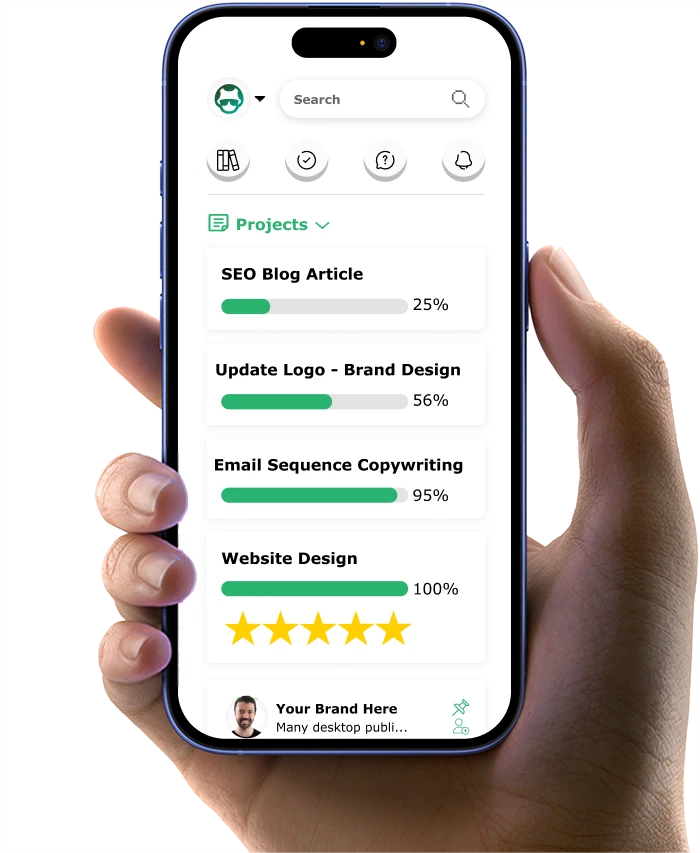Supercharge Your Clients' Content With These 9 Voice Search Tips

Voice search is a hot topic these days.
With Google Assistant, Siri, Alexa, and Cortana becoming household names, it’s important to make sure your website is up to date with voice search optimization (VSO) best practices.
Voice search will soon be the dominant way that people interact with their devices.
Just think about how quickly we’ve shifted from typing on keyboards to talking into our phones.
If your agency isn't already optimizing for voice searches, now is the time.
That way, you’re one step ahead of your competitors.
However, consumers use voice search quite differently than traditional search—sometimes for completely different purposes.
And these differences affect your SEO.
With this guide, you’ll learn about:
- Some of the trends in voice search—and how they impact digital marketing.
- 9 voice search tips to improve SEO rankings.
- How your digital agency can use these tips for your own strategy.
Without further ado, let’s start off with some background on voice search in the consumer market.
In a rush? Want to download this article as a PDF so you can easily take action on it later? Click here to download this article as a PDF guide.
How Voice Search Is Being Used by Consumers
Over the years, voice search has become adopted by consumers at a rapid pace.
In 2019, there were 3.25 billion digital voice assistants in use worldwide, as per Statista.
By 2024, that number will be 8.4 billion.
Voice search commands are usually done using mobile devices.
But they’re also carried out through watches, desktop, tablets, and household devices like Alexa.
According to research from PwC, 61% of 25-49 year olds are heavy users of voice search as of 2018.
But Gen Z and baby boomers still use it too—59% and 57% heavy users respectively.
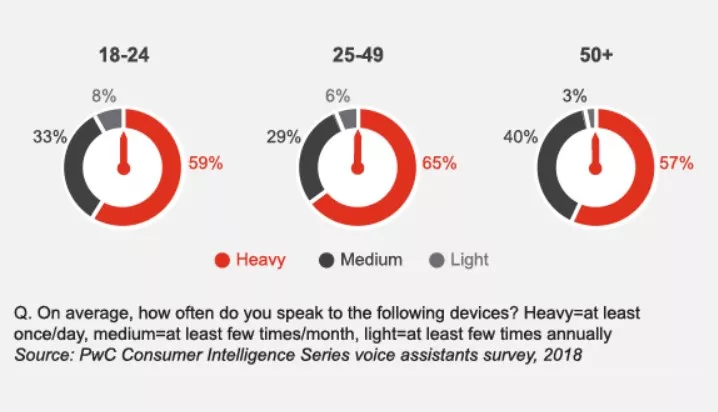
Clearly, voice search is mainstream.
But what are consumers using their voice assistants for?
According to the shipping and delivery solutions platform, Narvar, 51% of consumers use voice to research products.
And 22% use voice to make a transaction.
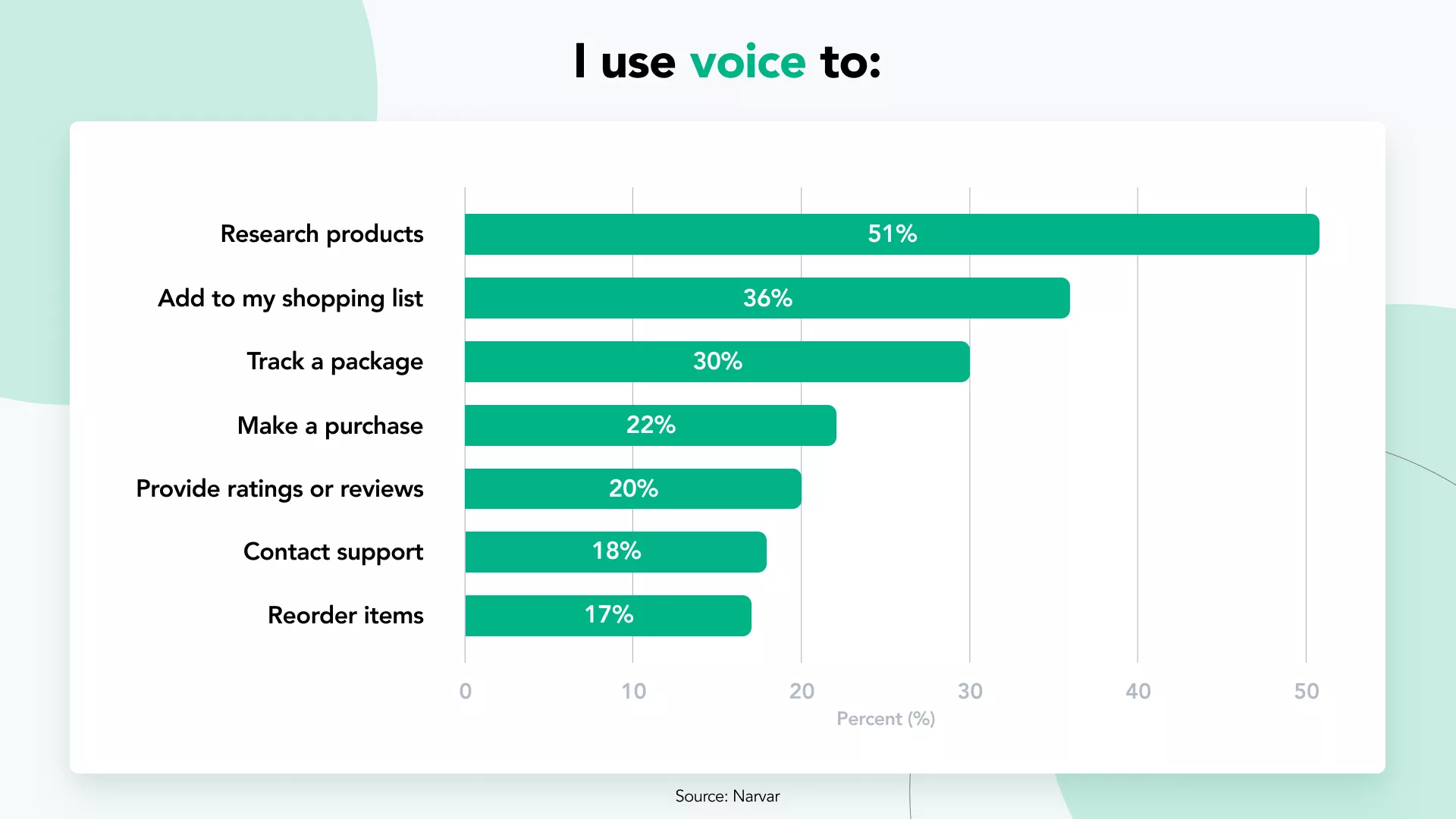
As voice search continues to take over digital shopping, you’ll need to adapt.
If you want to improve your agency's voice search SEO strategy, then let’s kick off with the first voice search tip.
#1 Voice Search Tip for Agencies: Add FAQs to Your Website
The first voice search tip is to include FAQs on your client's website.
Consumers that use voice search with their phones often ask questions.
And having a section dedicated to answering some of these questions is a good way to gain more exposure.
According to research from Invoca, voice searches that are questions get the most results.
Voice searches beginning with “how” account for 8.64% of results.
And voice searches beginning with “what” account for 2.63% of results.
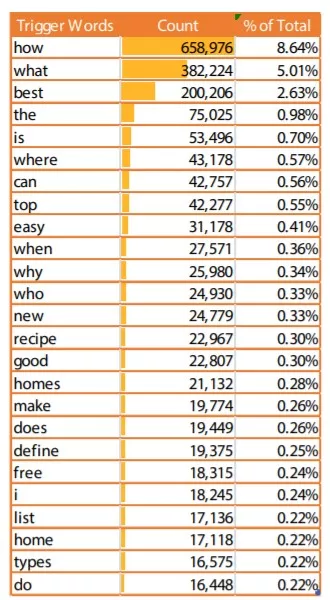
#2 Voice Search Tips for Agencies: Optimize for Featured Snippets
In a study carried out by Semrush, they found that 60% of voice search results return a featured snippet (the brief excerpt that you see accompanied with the top Google search result).
But this means you must make sure that your featured snippet is top notch.
So make sure that your formatting is SEO friendly.
That means you make sure you’ve factored in user intent, your formatting is organized, and you’re using the right keywords.
According to Semrush, 10 keywords seems to be the sweet spot, accounting for 55.5% of featured snippets.
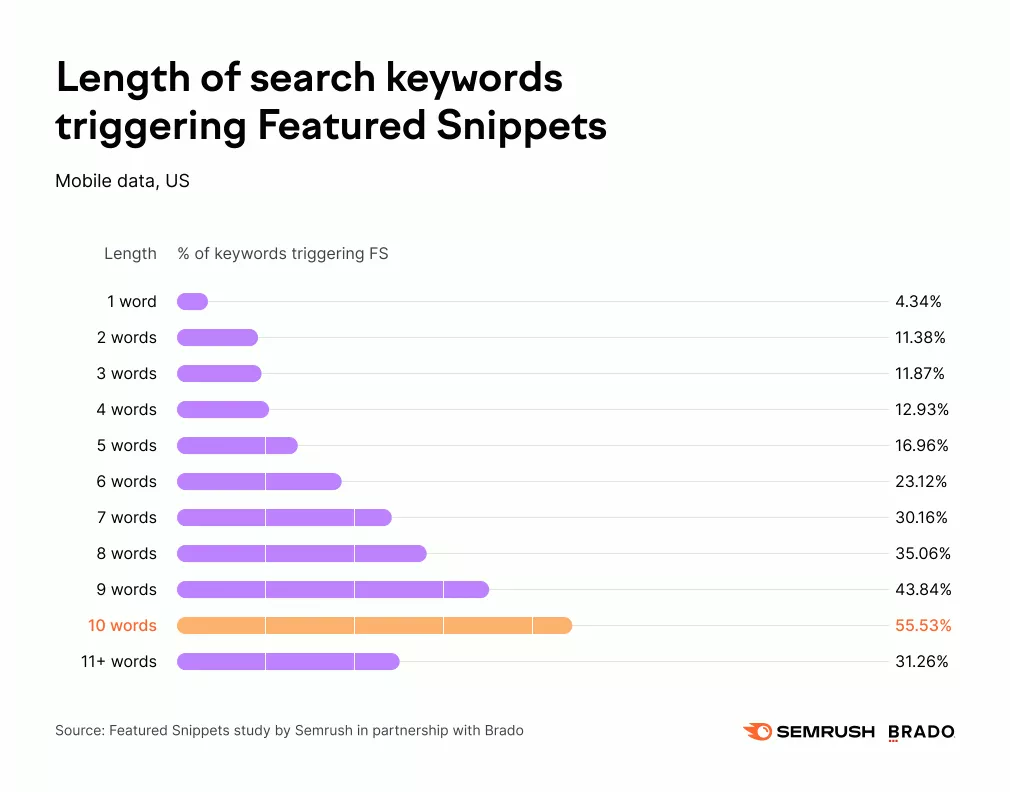
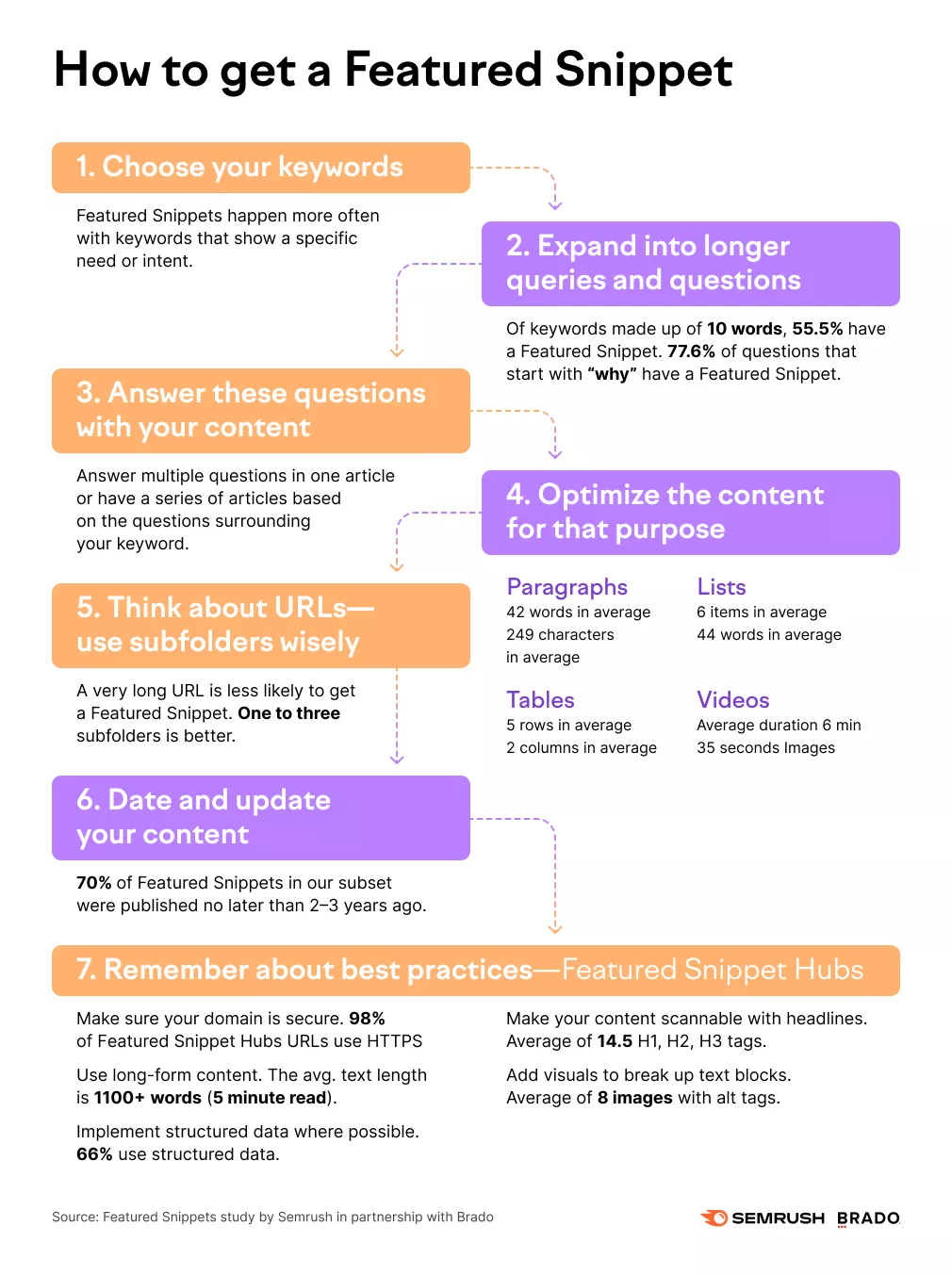
#3 Voice Search Tips for Agencies: Update Your Client's (Local) Business Listings for All Voice Assistants
Updating your client's business listing is a voice search tip that’s easy to overlook.
A business listing is where local shoppers can find out more about a company.
And it’s where they’re likely to make a phone call.
You see, 58% of consumers use voice search to look for a local business, as reported by BrightLocal.
So if your client has physical locations, you must ensure that each voice assistant will pull accurate information about your client's business.
According to the Local Marketing Institute, Google Assistant and Apple’s Siri account for 36% each in the voice assistant market share.
Closely followed by Amazon Alexa at 25%, and Microsoft’s Cortana at 19%.
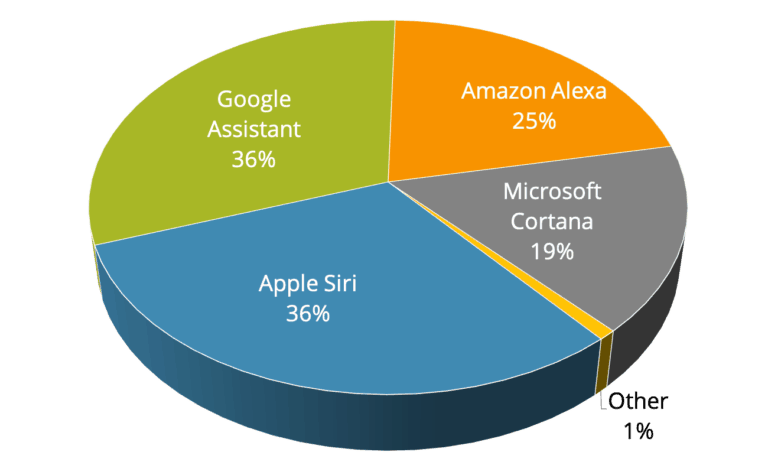
So it’s safe to say all voice assistants are pretty popular.
And all of them need to include an updated version of your local business.
Some things to keep in mind when updating your client's business listings:
- Update your client's phone number when necessary across all search platforms
- Respond to reviews in a timely manner so that search engines rank you better
- 46% of voice searches want to hear about prices, according to BrightLocal
- Siri pulls its data from Apple Maps
- Alexa pulls its data from Yelp and Yext
- Cortana pulls its data from Bing Places
Ok, so let’s proceed to the next voice search tip.
#4 Voice Search Tips for Agencies : Have a Fast-Loading Website
Having a fast-loading website is important.
Consumers expect speed.
According to Unbounce, 70% of consumers say a website’s loading time affects their willingness to buy.
But for voice search, this is even more critical.
That’s because the top voice search results have faster than average website loading speeds.
As Backlinko found, a voice search result page loads 1.9 times faster than the average webpage.
So the takeaway with this voice search tip is that search engines prioritize pagespeed for voice inquiries more so than traditional searches.
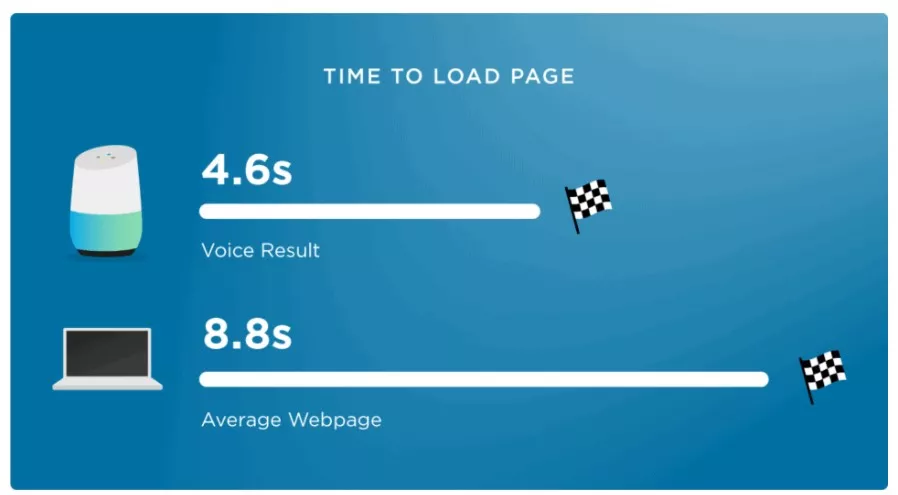
#5 Voice Search Tips for Agencies: Use Schema Markups
A schema markup is a piece of HTML code that you add to your website.
With it, search engines can better understand what your client's website content aims to achieve.
In turn, the search engine has more options when it comes to matching your content with a voice search.
Basically, you highlight the sections of the website that are the most relevant for text-to-speech, which allows the digital assistant to voice your content in its answer.
For example, music venue Lupo’s Heartbreak Hotel uses a schema markup for its upcoming events.

That’s because someone is likely to voice search, “What are some upcoming events at Lupo’s Heartbreak Hotel?”
In essence, it’s a piece of content from the Lupo website that is compatible with voice search inquiries.
In one case study, a luxury jewelry chain generated 74% more traffic from pages with a schema.
This was after the team realized that the mobile users were bringing in the most traffic and clicks.
#6 Voice Search Tips for Agencies: Use a Conversational Tone
In order to optimize your presence in voice search inquiry results, , you must use a conversational tone with your copy.
Remember, consumers are more likely to talk like an actual person with voice search when compared to typing.
To illustrate, with a traditional search, a smartphone consumer might type in “iPhone 13 features” and call it a day.
So Apple or another seller would simply use keywords like “iPhone 13,” “new iPhone,” and “features.”
But with a voice search, the user might say “Siri, tell me what kind of features the iPhone 13 has.”
To accommodate for the difference in semantics, use more conversational copy when filling out your meta descriptions and the copy in your blogs and landing pages.
Since voice searchers will say more, you’re going to need to come up with a long-tail keyword strategy—which is something you probably already do since 70% of all search traffic comes from long-tail keywords, as reported by Moz.
With this voice search tip, your client's website copy will be more closely matched with a user inquiry.
#7 Voice Search Tips for Agencies: Your Voice Search Strategy Needs to Be Mobile First
For voice search campaigns, you have to put the mobile user at the heart of all your efforts.
In BrightLocal’s survey, it was found that 56% of voice search inquiries stem from mobile devices.
Because of that, it’s crucial to ensure that your client's website is mobile friendly.
When someone lands on your client's website via voice search, they expect it to load fast on mobile.
And the visual layout must be optimized for mobile readers.
So no text going off screen.
No big, clunky CTA buttons.
When Google surveyed consumers back in 2012, they found that 74% of people say they’re more likely to return to a mobile-friendly site in the future.
Today, that percentage is likely even higher as the world has become more mobile-centric.
To add further, 61% of consumers will move onto another website if your agency isn’t making sure it's designed for mobile users.
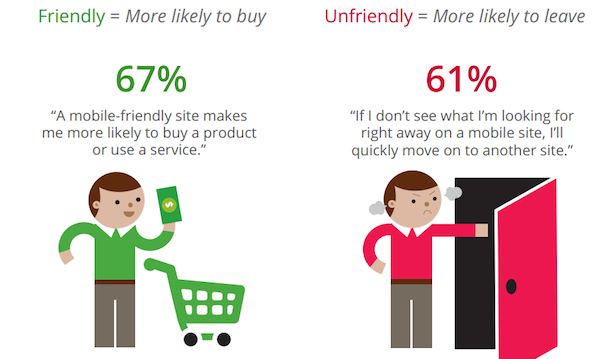
As no surprise, SaaS developer platform, Layer 0, revealed in its study that 83% of the top Google results are from mobile-friendly websites.
And 80% of Alexa’s Bing top-ranking websites are mobile friendly, as reported by TechJury.
#8 Voice Search Tips for Agencies: Pay Attention to Which Voice Keywords Perform Best
When it comes to detecting which keywords are voice search inquiries, you need to turn to your agency's analytics platform.
While you review your keyword sources, try to see if any of them are potential voice commands.
And you can do that by taking note of which visitors used 5 or more keywords.
You see, long-tail phrases are much more likely to be voice commands than a traditional search.
In like fashion, try to identify keyword phrases that sound more conversational and natural.
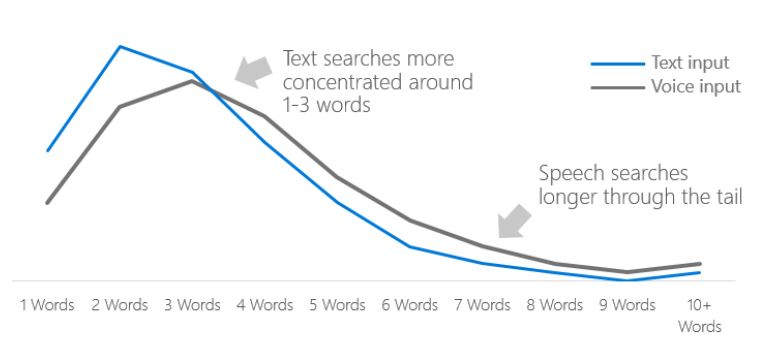
Once you see which long-tail keywords perform the best, focus on using them, or variations, in future content that your agency works on.
#9 Voice Search Tips for Agencies: Factor in Multilingual SEO
This last voice search tip is a must-have if your agency's clients target various geographic regions in the world.
With different consumer markets, the odds are your target audience speaks different languages.
And this comes with its challenges.
The phrasing of similar voice search inquiries could be very different, depending on what language the consumer speaks.
Then, there’s cultural differences.
See, a popular search inquiry in the United States won’t necessarily be as popular in the Philippines.
It’s possible, but there are often differences.
For example, the search inquiry “last minute holidays” has drastically different results between the UK which had 117K searches and France which had 8.4k..
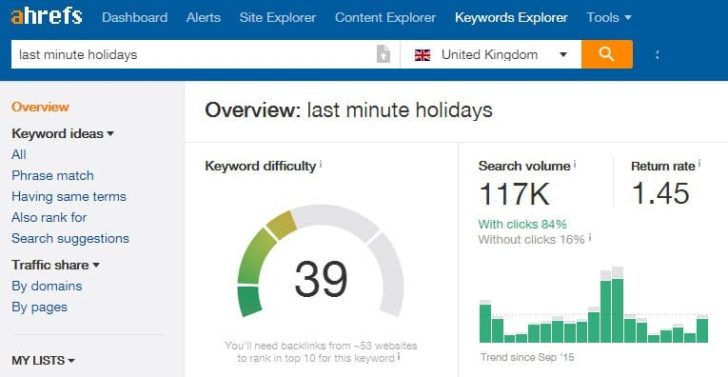
As you can see, French consumers either aren’t as interested in last-minute traveling or they use a different phrase in their searches.
You can use a keyword research tool such as Ahrefs to see what keywords work best for the geographic regions you target.
Although optimizing a website is a complex thing to do, there are two key things I’d like to point out.
- Don’t use a simple 1-1 translation from Google Translate. Instead, hire a human translator that knows the language—and you’ll be able to resonate with your target audiences.
- Setup hreflang (attached to the URL and the chosen website section) and alternate tags so that Google knows your pages are alternate versions, as opposed to duplicates.
Conclusion
Download the “Supercharge Your Clients' Content With These 9 Voice Search Tips ” so you won’t forget to take action on it later. Click here to download it now.
Voice search is a new frontier for SEO.
If you want your digital marketing agency to succeed, make sure your clients' websites rank high by following the 9 voice search tips broken down for you in this guide.
From there, you’ll generate more traffic to the web pages where you will win over more customers.
And if that sounds like too much work for your agency at this time or you want someone else to do it all for you, speak with our sales team.
We’ll build an effective SEO strategy tailored to the needs of your business.
Or alternatively, you can watch our 17-minute on demand video to learn more about the Growbo platform.
And before you go...
Did you learn anything new?
Let me know in the comments below.
Keep Growin’, stay focused.
Mark

 Source
Source
